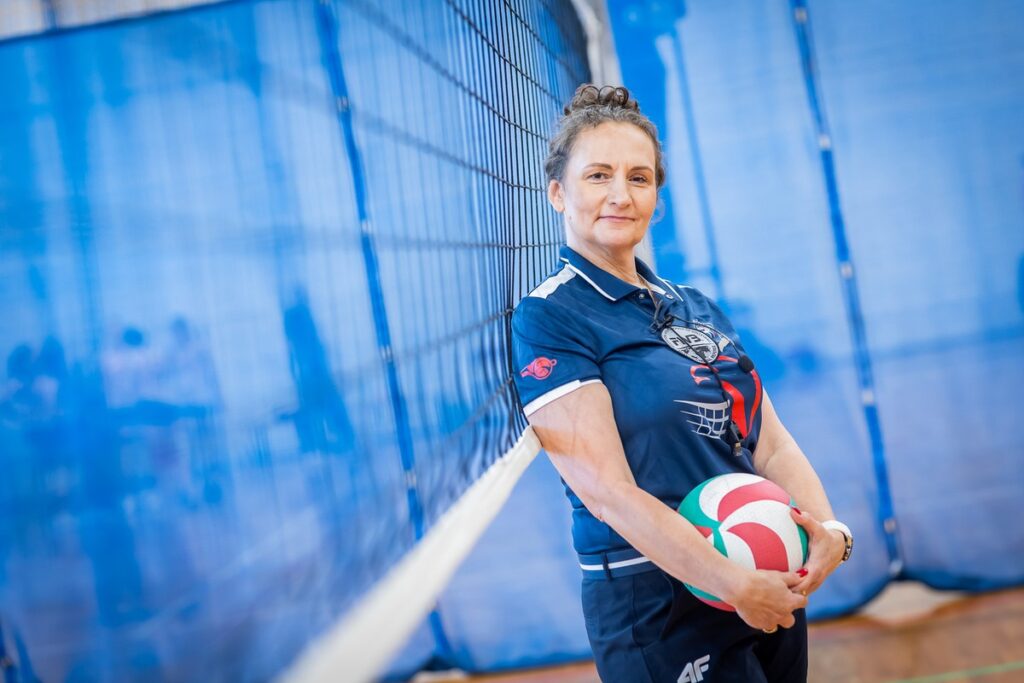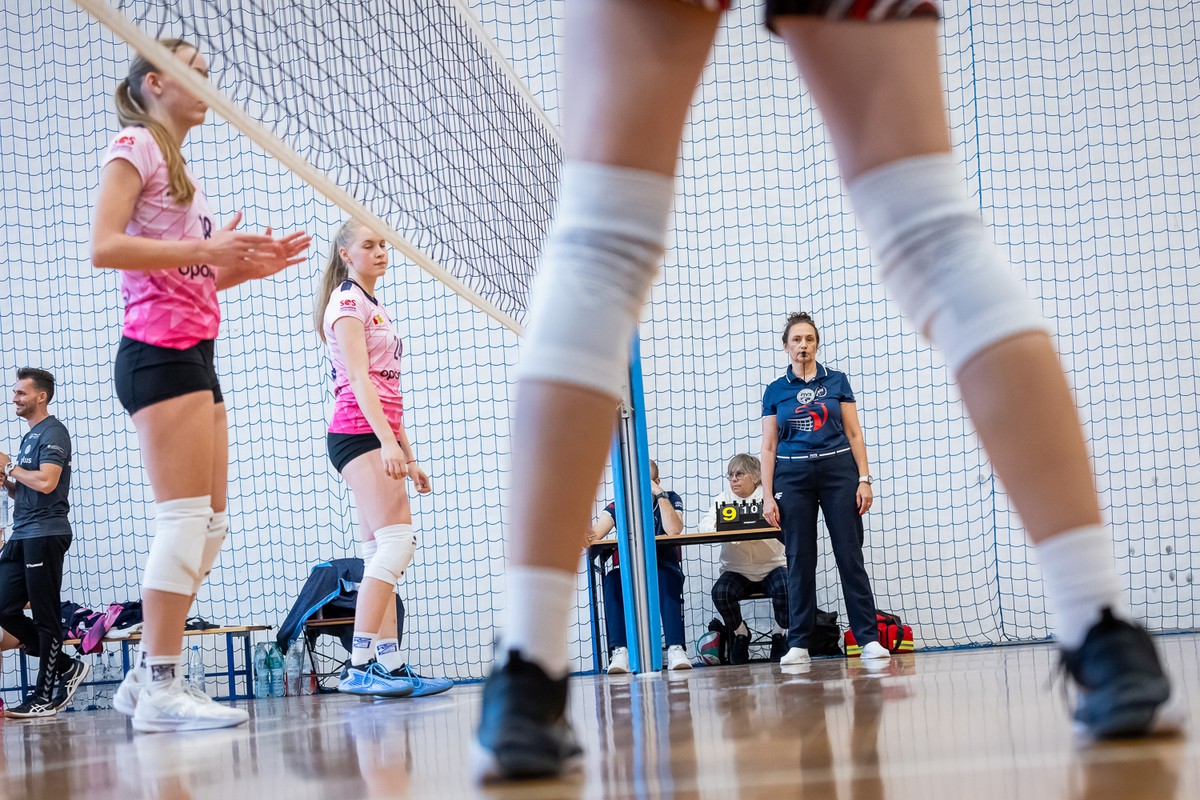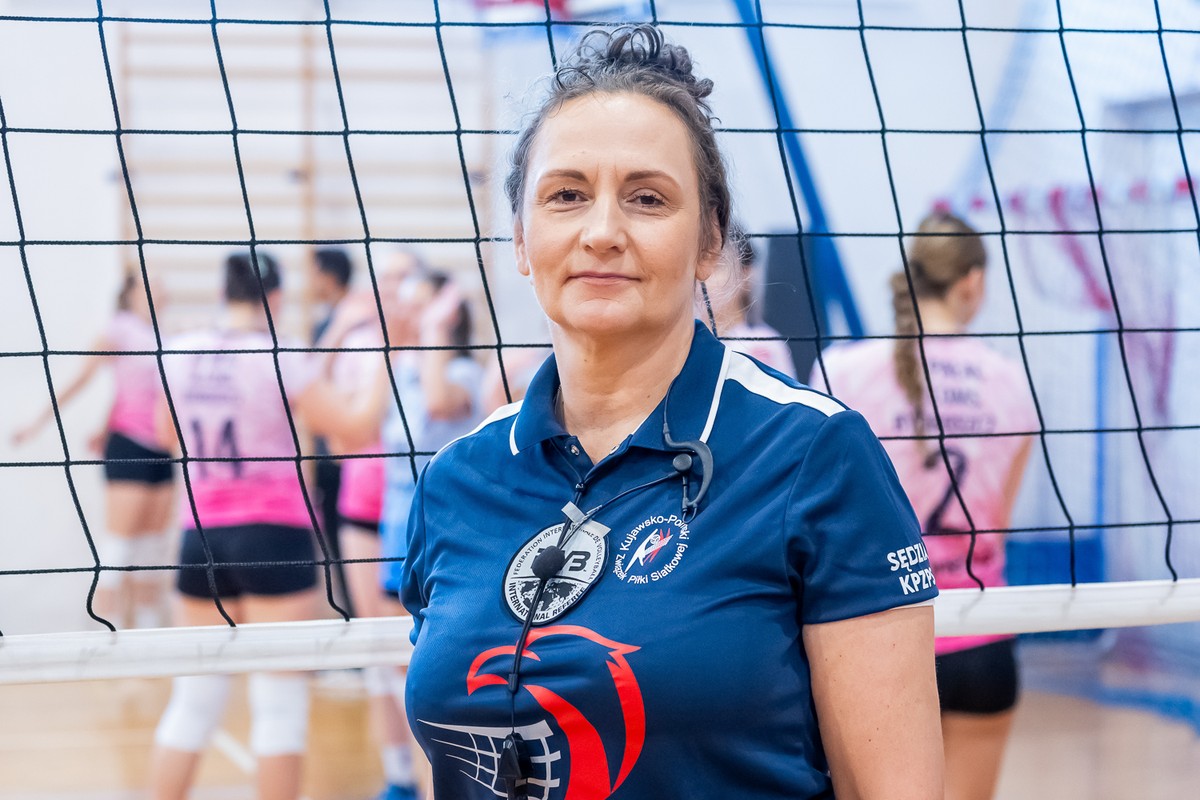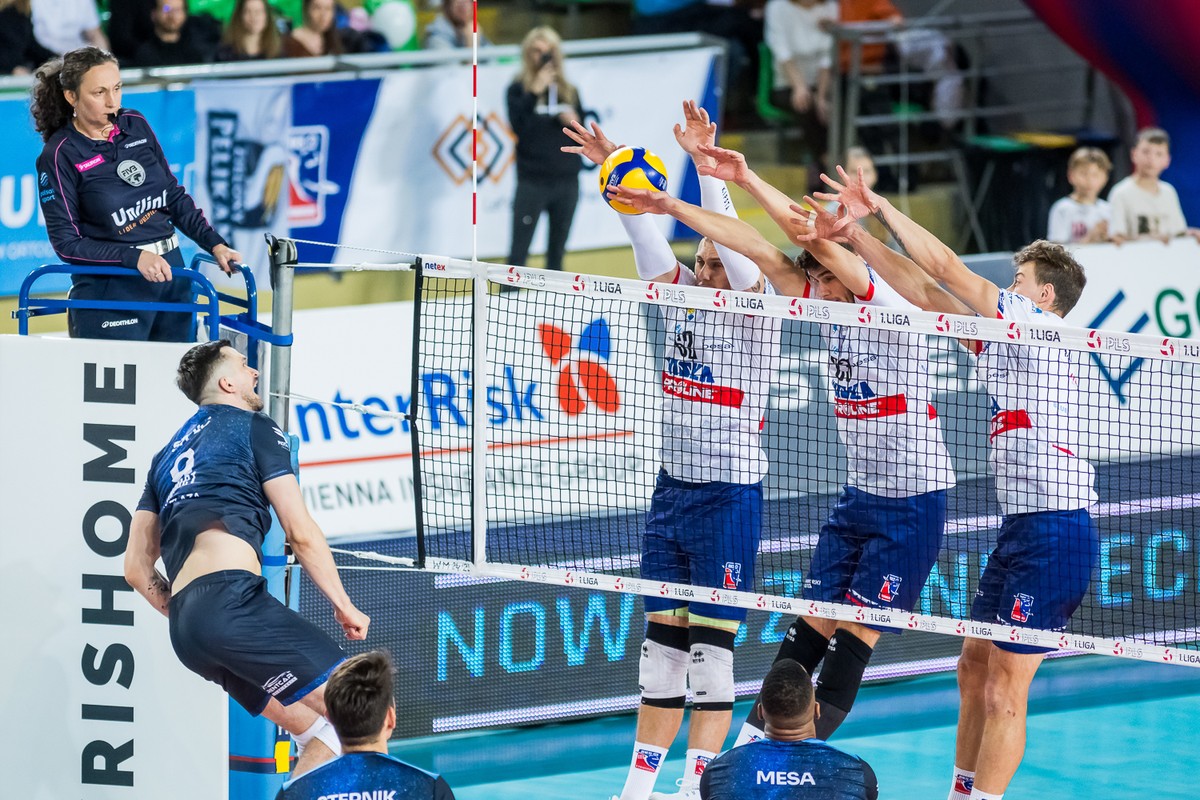
I’m a Lucky Woman
An interview with Agnieszka Michlic – volleyball player and international volleyball referee
Is there a volleyball player you’d like to have a candlelit dinner with?
One player who really impressed me was the Brazilian Giba. I never even dreamed of having dinner in his company – and yet, that’s exactly what happened. Our first meeting took place in Bydgoszcz during the Hubert Jerzy Wagner Memorial Tournament, and we met again at a banquet in Kraków during the same event. Both he and I were there with our spouses and children, along with several others, sitting together at one table for dinner.
And is there a female volleyball player you’d like to be friends with?
There are quite a few volleyball players I get along with. I have very good relations with many of our “golden girls” [the European champions of 2003], as well as with the younger generation. I wouldn’t call it friendship – that’s a very special word in my understanding – but there are many girls I’d gladly go out for coffee with.

Agnieszka Michlic, fot. Tomasz Czachorowski/eventphoto.com.pl dla UMWKP
How did your adventure with refereeing begin?
I became a referee in 1994. I signed up for the course while I was still an active player, together with a few friends from volleyball, after hearing that such a course was being organized in the Palace of Youth building in Bydgoszcz, where we trained. Unfortunately, I was the only one who stuck with the profession.
To a casual observer, refereeing a volleyball match might not seem very difficult. What is it like in reality?
Refereeing is very difficult! It means making split-second decisions under tremendous stress, relying on a deep knowledge of extensive rules, guidelines, instructions, and the book of complex cases — all of which you must have at your fingertips in order to apply them correctly to that one specific situation you’re judging.
Once, a referee coach explained it to us very clearly:
“Do you think a student from the Sorbonne could memorize all our rules and materials in three days? Yes, they could. But would that student automatically become a good referee? No — because knowing the rules is one thing, having the right predispositions is another, being able to work under stress and noise is yet another, and on top of all that, you must know how to deal with people.”
A referee needs good eyesight, quick reflexes, short reaction time, and the ability to anticipate. The qualities of a good referee also include proper demeanor, self-control, appropriate language, and a clear signaling style — developed over years — that’s easily understood by everyone.
On top of that, there’s the challenge of performing in front of thousands of spectators in the hall and on TV, the ever-present cameras, and the pressure from players, coaches, and officials. Fatigue from long travel to the match venue and all the ordinary human weaknesses — because we are only human — are more obstacles an official must overcome.

Agnieszka Michlic, fot. Tomasz Czachorowski/eventphoto.com.pl dla UMWKP
How do you prepare for matches?
Each of us has our own ritual. It often depends on the type of competition, too. In Poland, we usually travel to the match on the day it’s played. After a long journey, there’s time at best for a short walk — and, of course, a coffee, although I know referees who don’t drink it. At tournaments or international matches, we arrive the day before. That allows for more rest and relaxation. Many of us also turn to music. Some get energized with strong beats, others calm down with something more sentimental.
But I’m talking here about the final stage of preparation before a match. Before that come dozens of hours spent studying rulebooks and watching videos. There are also discussions with colleagues, breaking down single plays into micro-elements, working in front of a mirror to practice signaling, reaction time, tone, whistle volume and duration, and of course practice — officiating training sessions, scrimmages, and friendly tournaments.
Which match required the most focus from you? Which one do you remember the most?
There have been several. The first that comes to mind is the final of the 2019 Women’s European Championship in Ankara: Turkey vs. Serbia. I was the first referee. The level of play was absolutely incredible. Around us were 13,500 screaming Turkish fans with horns, five sets, points played to the limit, and not a single lost video challenge.
Another memorable one was the decisive PlusLiga semifinal last season between JSW Jastrzębski Węgiel and Bogdanka LUK Lublin, which ended 2–3, as well as the final between Bogdanka LUK Lublin and Aluron CMC Warta Zawiercie. I never expected to have the honor of officiating matches like those!
And the latest big one: Italy vs. Brazil — a five-set semifinal at the 2025 World Championship in Thailand, hailed as one of the best women’s volleyball matches of the decade. I could name quite a few more.
You’ve refereed many important matches. For fans, especially those from our region, the most emotional ones are the derby matches. Is it difficult for you to remain objective?
Not at all. Whether it’s a team from Bydgoszcz or from Toruń, a good friend playing on the court, or an old teammate now serving as a club president — none of that matters. Once I step onto the referee stand, everyone is equal in my eyes.

Agnieszka Michlic podczas meczu PLS 1. Ligi pomiędzy BKS Visłą Proline Bydgoszcz a CUK Aniołami Toruń w 2024 roku, fot. Tomasz Czachorowski/eventphoto.com.pl dla UMWKP
A few years ago, the media reported your health problems and cancer treatment. You received a lot of support from many people at that time.
Yes! People truly gave me so much! And I don’t just mean the financial help, although that made my life much easier — it allowed me to afford expensive therapies, visits to top specialists, and rehabilitation. People gave me strength, positive energy, and faith in a better tomorrow. Seeing all those expressions of kindness, I cried, whispering in disbelief: “I never thought people loved me.” It was incredible and completely unexpected. The word THANK YOU doesn’t even begin to express how deeply grateful I am for all that support.
Was that match won?
I’m doing well. It’s been over four years since the surgery. I have an MRI every six months. I still have some ailments; I’m not fully fit, but I don’t worry about that. I’m alive, I travel, and I do what I love. I’m surrounded by people, and I have a wonderful family and friends who stood by me in the hardest times. I also try to support others now. I’m a lucky woman.
Are there any competitions you still dream of refereeing?
The Olympics! That’s the dream not only of every athlete but of every referee as well.
October 2025


